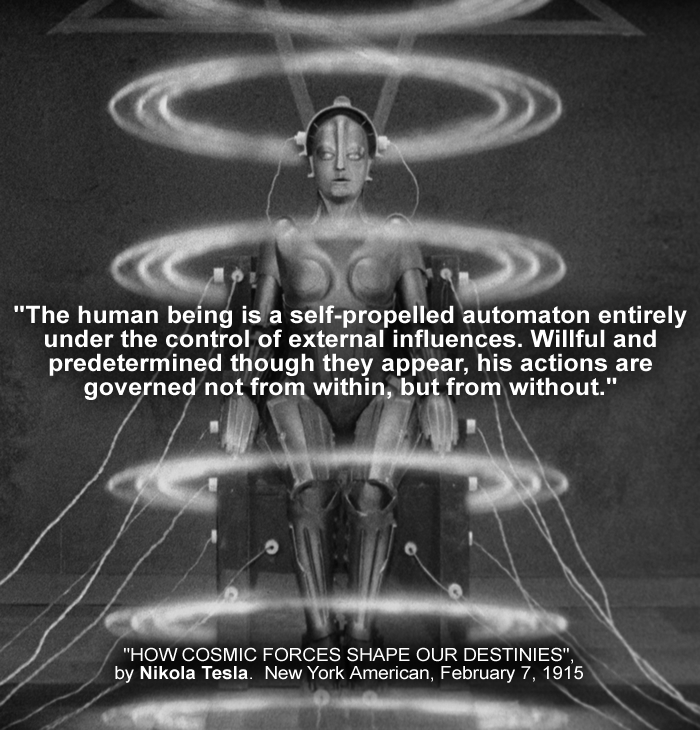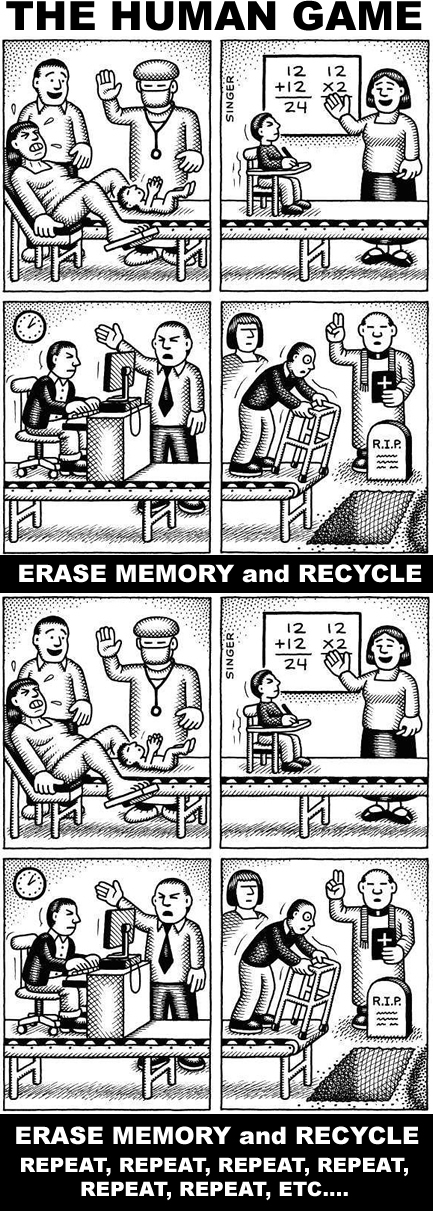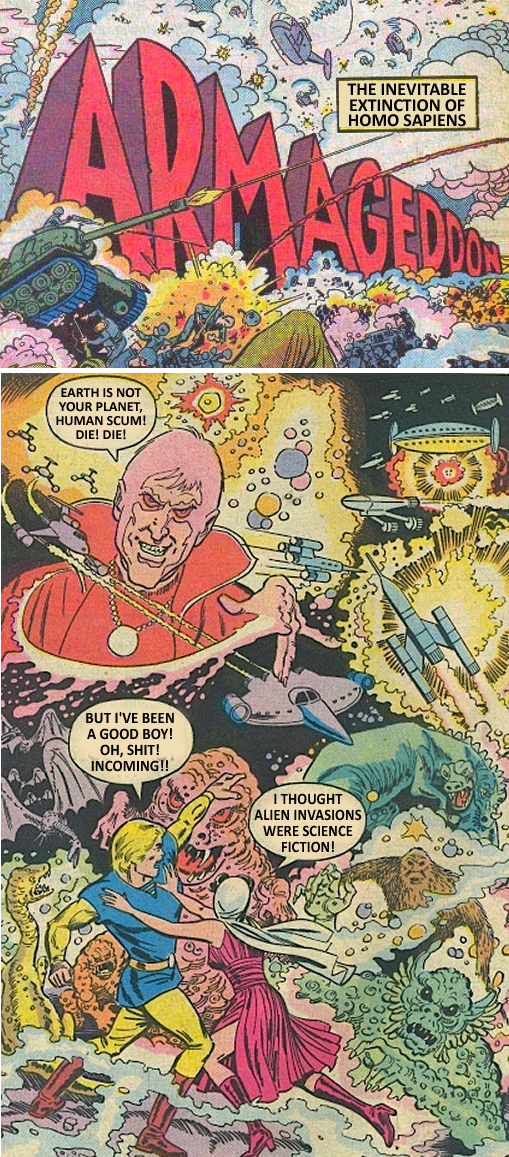Republished by Blog Post Promoter
 This comment was made by the man who was very probably the most influential inventor Earth has ever know. What did he know about human beings that we don’t know? How did he know?
This comment was made by the man who was very probably the most influential inventor Earth has ever know. What did he know about human beings that we don’t know? How did he know?
______________
Here is an article by Nikola Tesla, titled “HOW COSMIC FORCES SHAPE OUR DESTINES”
published in the New York American, February 7, 1915
Every living being is an engine geared to the wheelwork of the universe. Though seemingly affected only by its immediate surrounding, the sphere of external influence extends to infinite distance. There is no constellation or nebula, no sun or planet, in all the depths of limitless space, no passing wanderer of the starry heavens, that does not exercise some control over its destiny—not in the vague and delusive sense of astrology, but in the rigid and positive meaning of physical science.
More than this can be said. There is no thing endowed with life—from man, who is enslaving the elements, to the humblest creature—in all this world that does not sway it in turn. Whenever action is born from force, though it be infinitesimal, the cosmic balance is upset and universal motion result.
Herbert Spencer has interpreted life as a continuous adjustment to the environment, a definition of this inconceivably complex manifestation quite in accord with advanced scientific thought, but, perhaps, not broad enough to express our present views. With each step forward in the investigation of its laws and mysteries our conceptions of nature and its phases have been gaining in depth and breadth.
In the early stages of intellectual development man was conscious of but a small part of the macrocosm. He knew nothing of the wonders of the microscopic world, of the molecules composing it, of the atoms making up the molecules and of the dwindlingly small world of electrons within the atoms. To him life was synonymous with voluntary motion and action. A plant did not suggest to him what it does to us—that it lives and feels, fights for its existence, that it suffers and enjoys. Not only have we found this to be true, but we have ascertained that even matter called inorganic, believed to be dead, responds to irritants and gives unmistakable evidence of the presence of a living principle within.
Thus, everything that exists, organic or inorganic, animated or inert, is susceptible to stimulus from the outside. There is no gap between, no break of continuity, no special and distinguishing vital agent. The same law governs all matter, all the universe is alive. The momentous question of Spencer, “What is it that causes inorganic matter to run into organic forms!” has been answered. It is the sun’s heat and light. Wherever they are there is life. Only in the boundless wastes of interstellar space, in the eternal darkness and cold, is animation suspended, and, possibly, at the temperature of absolute zero all matter may die.
MAN AS A MACHINE
This realistic aspect of the perceptible universe, as a clockwork wound up and running down, dispensing with the necessity of a hypermechanical vital principle, need not be in discord with our religious and artistic aspirations—those undefinable and beautiful efforts through which the human mind endeavors to free itself from material bonds. On the contrary, the better understanding of nature, the consciousness that our knowledge is true, can only be all the more elevating and inspiring.
It was Descartes, the great French philosopher, who in the seventeenth century, laid the first foundation to the mechanistic theory of life, not a little assisted by Harvey’s epochal discovery of blood circulation. He held that animals were simply automata without consciousness and recognized that man, though possessed of a higher and distinctive quality, is incapable of action other than those characteristic of a machine. He also made the first attempt to explain the physical mechanism of memory. But in this time many functions of the human body were not as yet understood, and in this respect some of his assumptions were erroneous.
Great strides have since been made in the art of anatomy, physiology and all branches of science, and the workings of the man-machine are now perfectly clear. Yet the very fewest among us are able to trace their actions to primary external causes. lt is indispensable to the arguments I shall advance to keep in mind the main facts which I have myself established in years of close reasoning and observation and which may be summed up as follows:
1. The human being is a self-propelled automaton entirely under the control of external influences. Willful and predetermined though they appear, his actions are governed not from within, but from without. He is like a float tossed about by the waves of a turbulent sea.
2. There is no memory or retentive faculty based on lasting impression. What we designate as memory is but increased responsiveness to repeated stimuli.
3. It is not true, as Descartes taught, that the brain is an accumulator. There is no permanent record in the brain, there is no stored knowledge. Knowledge is something akin to an echo that needs a disturbance to be called into being.
4. All knowledge or form conception is evoked through the medium of the eye, either in response to disturbances directly received on the retina or to their fainter secondary effects and reverberations. Other sense organs can only call forth feelings which have no reality of existence and of which no conception can be formed
5. Contrary to the most important tenet of Cartesian philosophy that the perceptions of the mind are illusionary, the eye transmits to it the true and accurate likeness of external things. This is because light propagates in straight lines and the image cast on the retina is an exact reproduction of the external form and one which, owing to the mechanism of the optic nerve, can not be distorted in the transmission to the brain. What is more, the process must be reversible, that in to say, a form brought to consciousness can, by reflex action, reproduce the original image on the retina just as an echo can reproduce the original disturbance If this view is borne out by experiment an immense revolution in all human relations and departments of activity will be the consequence.
NATURAL FORCES INFLUENCE US
Accepting all this as true let us consider some of the forces and influences which act on such a wonderfully complex automatic engine with organs inconceivably sensitive and delicate, as it is carried by the spinning terrestrial globe in lightning flight through space. For the sake of simplicity we may assume that the earth’s axis is perpendicular to the ecliptic and that the human automaton is at the equator. Let his weight be one hundred and sixty pounds then, at the rotational velocity of about 1,520 feet per second with which he is whirled around, the mechanical energy stored in his body will be nearly 5,780,000 foot pounds, which is about the energy of a hundred-pound cannon ball.
This momentum is constant as well as upward centrifugal push, amounting to about fifty-five hundredth of a pound, and both will probably be without marked influence on his life functions. The sun, having a mass 332,000 times that of the earth, but being 23,000 times farther, will attract the automaton with a force of about one-tenth of one pound, alternately increasing and diminishing his normal weight by that amount
Though not conscious of these periodic changes, he is surely affected by them.
The earth in its rotation around the sun carries him with the prodigious speed of nineteen miles per second and the mechanical energy imparted to him is over 25,160,000,000 foot pounds. The largest gun ever made in Germany hurls a projectile weighing one ton with a muzzle velocity of 3,700 feet per second, the energy being 429,000,000 foot pounds. Hence the momentum of the automaton’s body is nearly sixty times greater. It would be sufficient to develop 762,400 horse-power for one minute, and if the motion were suddenly arrested the body would be instantly exploded with a force sufficient to carry a projectile weighing over sixty tons to a distance of twenty-eight miles.
This enormous energy is, however, not constant, but varies with the position of the automaton in relation to the sun. The circumference of the earth has a speed of 1,520 feet per second, which is either added to or subtracted from the translatory velocity of nineteen miles through space. Owing to this the energy will vary from twelve to twelve hours by an amount approximately equal to 1,533,000,000 foot pounds, which means that energy streams in some unknown way into and out of the body of the automaton at the rate of about sixty-four horse-power.
But this is not all. The whole`solar system is urged towards the remote constellation Hercules at a speed which some estimate at some twenty miles per second and owing to this there should be similar annual changes in the flux of energy, which may reach the appalling figure of over one hundred billion foot pounds. All these varying and purely mechanical effects are rendered more complex through the inclination of the orbital planes and many other permanent or casual mass actions.
This automaton, is, however subjected to other forces and influences. His body is at the electric potential of two billion volts, which fluctuates violently and incessantly. The whole earth is alive with electrical vibrations in which he takes part. The atmosphere crushes him with a pressure of from sixteen to twenty tons, according, to barometric condition. He receives the energy of the sun’s rays in varying intervals at a mean rate of about forty foot pounds per second, and is subjected to periodic bombardment of the sun’s particles, which pass through his body as if it were tissue paper. The air is rent with sounds which beat on his eardrums, and he is shaken by the unceasing tremors of the earth’s crust. He is exposed to great temperature changes, to rain and wind.
What wonder then that in such a terrible turmoil, in which cast iron existence would seem impossible, this delicate human engine should act in an exceptional manner? If all automata were in every respect alike they would react in exactly the same way, but this is not the case. There is concordance in response to those disturbances only which are most frequently repeated, not to all. It is quite easy to provide two electrical systems which, when subjected to the same influence, will behave in just the opposite way.
So also two human beings, and what is true of individuals also holds good for their large aggregations. We all sleep periodically. This is not an indispensable physiological necessity any more than stoppage at intervals is a requirement for an engine. It is merely a condition gradually imposed upon us by the diurnal revolution of the globe, and this is one of the many evidences of the truth of the mechanistic theory. We note a rhythm or ebb and tide, in ideas and opinions, in financial and political movements, in every department of our intellectual activity.
HOW WARS ARE STARTED
It only shows that in all this a physical system of mass inertia is involved which affords a further striking proof. If we accept the theory as a fundamental truth and, furthermore, extend the limits of our sense perceptions beyond those within which we become conscious of the external impressions, then all the states in human life, however unusual, can be plausibly explained. A few examples may be given in illustration.
The eye responds only to light vibrations through a certain rather narrow range, but the limits are not sharply defined. It is also affected by vibrations beyond, only in lesser degree. A person may thus become aware of the presence of another in darkness, or through intervening obstacles, and people laboring under illusions ascribe this to telepathy. Such transmission of thought is absurdly impossible.
The trained observer notes without difficulty that these phenomena are due to suggestion or coincidence. The same may be said of oral impressions, to which musical and imitative people are especially susceptible. A person possessing these qualities will often respond to mechanical shocks or vibrations which are inaudible.
To mention another instance of momentary interest reference may be made to dancing, which comprises certain harmonious muscular contractions and contortions of the body in response to a rhythm. How they come to be in vogue just now, can be satisfactorily explained by supposing the existence of some new periodic disturbances in the environment, which are transmitted through the air or the ground and may be of mechanical, electrical or other character.
Exactly so it is with wars, revolutions and similar exceptional states of society.
Though it may seem so, a war can never be caused by arbitrary acts of man.
It is invariably the more or less direct result of cosmic disturbance in which the sun is chiefly concerned.
In many international conflicts of historical record which were precipitated by famine, pestilence or terrestrial catastrophes the direct dependence of the sun is unmistakable. But in most cases the underlying primary causes are numerous and hard to trace.
In the present war it would be particularly difficult to show that the apparently willful acts of a few individuals were not causative. Be it so, the mechanistic theory, being founded on truth demonstrated in everyday experience, absolutely precludes the possibility of such a state being anything but the inevitable consequence of cosmic disturbance.
The question naturally presents itself as to whether there is some intimate relation between wars and terrestrial upheavals. The latter are of decided influence on temperament and disposition, and might at times be instrumental in accelerating the clash but aside from this there seems to be no mutual dependence, though both may be due to the same primary cause.
What can be asserted with perfect confidence is that the earth may be thrown into convulsions through mechanical effects such as are produced in modern warfare. This statement may be startling, but it admits of a simple explanation.
Earthquakes are principally due to two causes—subterranean explosions or structural adjustments. The former are called volcanic, involve immense energy and are hard to start. The latter are named tectonic; their energy is comparatively insignificant and they can be caused by the slightest shock or tremor. The frequent slides in the Culebra are displacements of this kind.
WAR AND THE EARTHQUAKE
Theoretically, it may be said that one might think of a tectonic earthquake and cause it to occur as a result of the thought, for just preceding the release the mass may be in the most delicate balance. There is a popular error in regard to the energy of such displacements. In a case recently reported as quite extraordinary, extending as it did over a vast territory, the energy was estimated at 65,000,000,000,000 foot tons. Assuming even that the whole work was performed in one minute it would only be equivalent to that of 7,500,000 horse-power during one year, which seems much, but is little for a terrestrial upheaval. The energy of the sun’s rays falling on the same area is a thousand times greater.
The explosions of mines, torpedoes, mortars and guns develop reactive forces on the ground which are measured in hundreds or even thousands of tons and make themselves felt all over the globe. Their effect, however, may be enormously magnified by resonance. The earth is a sphere of a rigidity slightly greater than that of steel and vibrates once in about one hour and forty-nine minutes.
If, as might well be possible, the concussions happen to be properly timed their combined action could start tectonic adjustments in any part of the earth, and the Italian calamity may thus have been the result of explosions in France. That man can produce such terrestrial convulsions is beyond any doubt, and the time may be near when it will be done for purposes good or apt.






